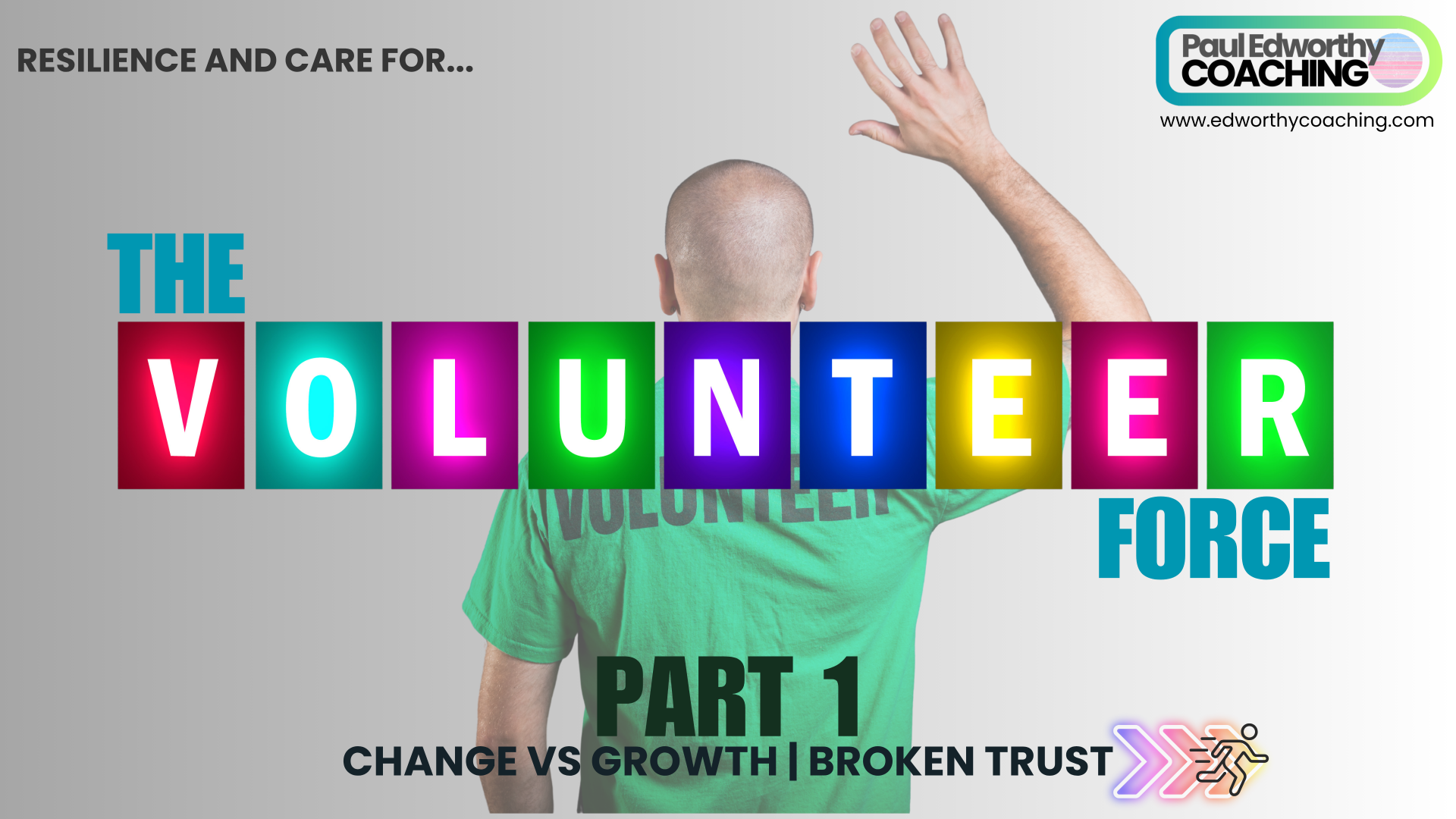
Viva La Coconut!
Guest Blogger Paul Edworthy
Volunteering in any context, whether it's mentoring young people, supporting a community initiative, serving in a church, or helping in a care setting, is both a privilege and a challenge. It places us alongside people in real need, facing personal struggles, uncertainty, and often slow, complex journeys of change. With 55% of adults in the UK volunteering at least once a year, and 34% volunteering monthly, there is a real need to understand how resilience works for the incredible volunteer force we have in this country.
When it comes to resilience, we would do well to take a cue from the humble coconut tree. Found in stormy, windswept places, coconut trees bend dramatically but rarely break. They are flexible, rooted, and quietly fruitful, even in tough conditions. They might look like they are on holiday, but they are masters of endurance.
As volunteers, we need the same kind of strength! Not rigid, stoic grit, but a deep, adaptive resilience that helps us stand firm and stay kind, even when the work is hard. Volunteering stretches us. It exposes our limitations, tests our motivations, and sometimes leaves us feeling disillusioned or emotionally tired. Resilience is not just something needed by those in need of support—it is something we, as volunteers, must cultivate ourselves.
Resilience means understanding the difference between change and growth, recognising that trust can be broken but also rebuilt, and setting wise emotional boundaries. Perhaps most of all, it means holding onto hope—through small, measurable steps.
Understanding Change vs. Growth
In many volunteer roles, we feel the pull to "make a difference." We hope to see people turn things around, make good choices, or move forward quickly. Maybe they'll find work, reconnect with family, overcome harmful habits, or re-engage with faith and community.
But here's the challenge: change isn't the same as growth.
- Change can be external, short-term, and reactive.
- Growth is internal, slow, deeply personal, and rooted in identity and mindset.
To put it another way: change is doing something different; growth is becoming someone different.
Resilient volunteers learn to celebrate growth, not just outcomes. They notice not just whether someone is attending regularly or ticking boxes, but whether they're starting to believe they have value. Whether they're becoming more honest. Whether they're taking ownership of small, meaningful choices.
This kind of growth produces lasting fruit. It's not always visible right away, but when we learn to look for it and affirm it, we create environments where people feel empowered—not just helped.
Trust Is Broken, and Can Be Rebuilt
Almost every volunteering context involves people who have experienced broken trust through relationships, institutions, or painful past experiences. As a result, they may be cautious, guarded, or inconsistent. Trust might be offered tentatively and withdrawn quickly.
This can be discouraging. A person we've supported may suddenly cut contact, mislead us, or reject our help. But resilience means remembering that trust is fragile, but also rebuildable. It takes time, consistency, and clarity.
Rebuilding trust doesn't mean enabling harmful behaviour. It means holding steady boundaries while keeping an open heart. It's saying:
I care enough to be honest with you, and I'm not giving up on you."
Volunteering is rarely neat and tidy. But when we hold onto hope, celebrate growth, and show up consistently, we model a resilience that bends but does not break...just like the coconut tree.
Reflection Questions:
- Where have I seen growth (not just change) in someone I support?
- How do I respond when trust is broken?
- Am I learning to celebrate hidden progress, not just visible outcomes?
You can find the original blog, along with others at www.edworthycoaching.com/blog
*Opinions expressed in guest posts are those of the author, and do not represent any official position held by Jubilee+.*
